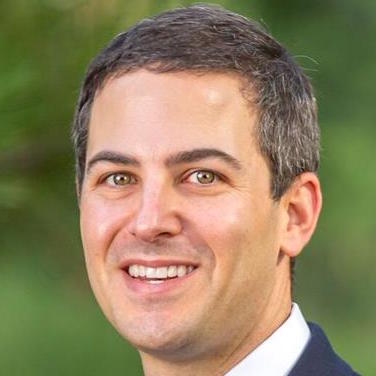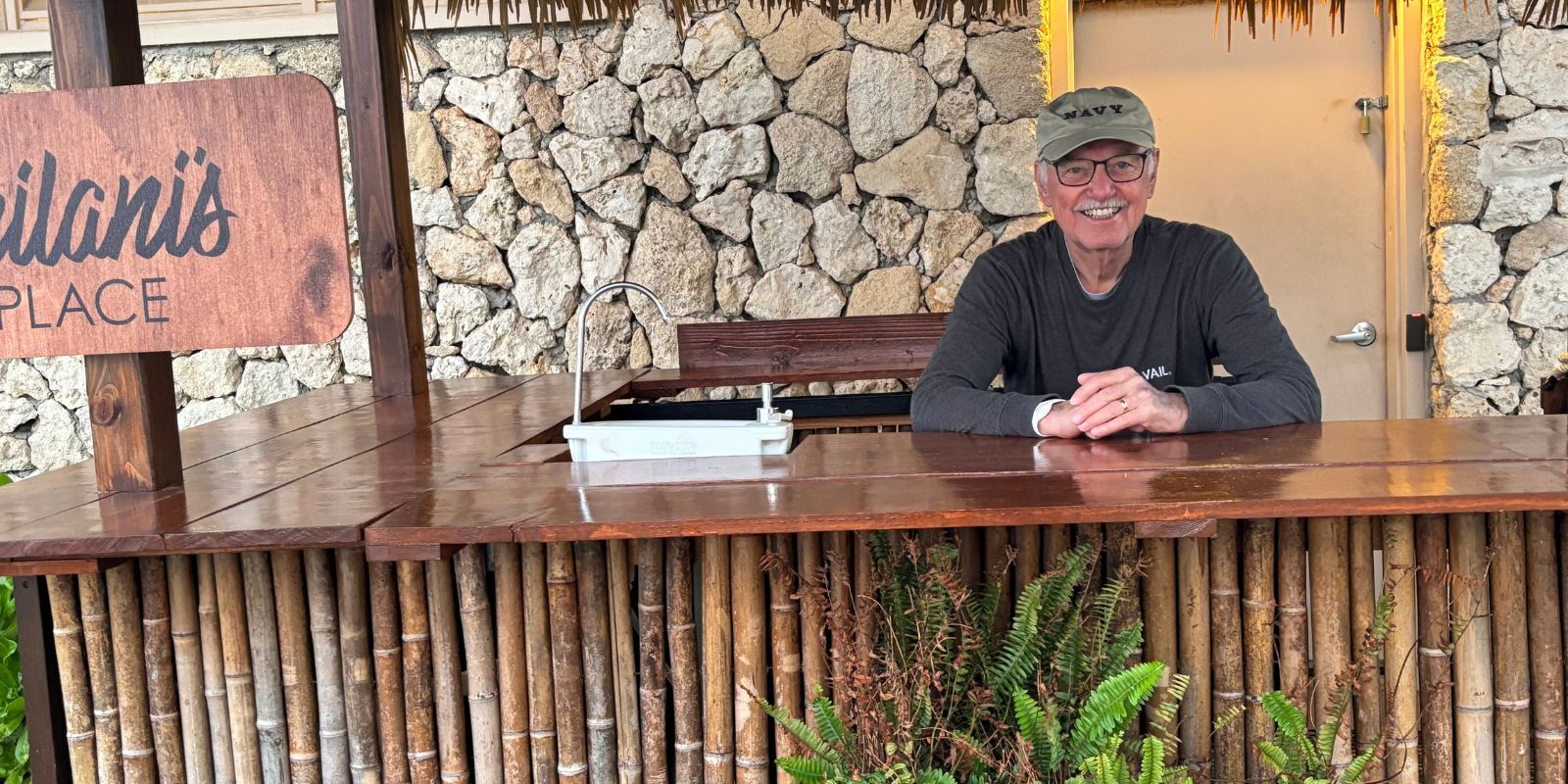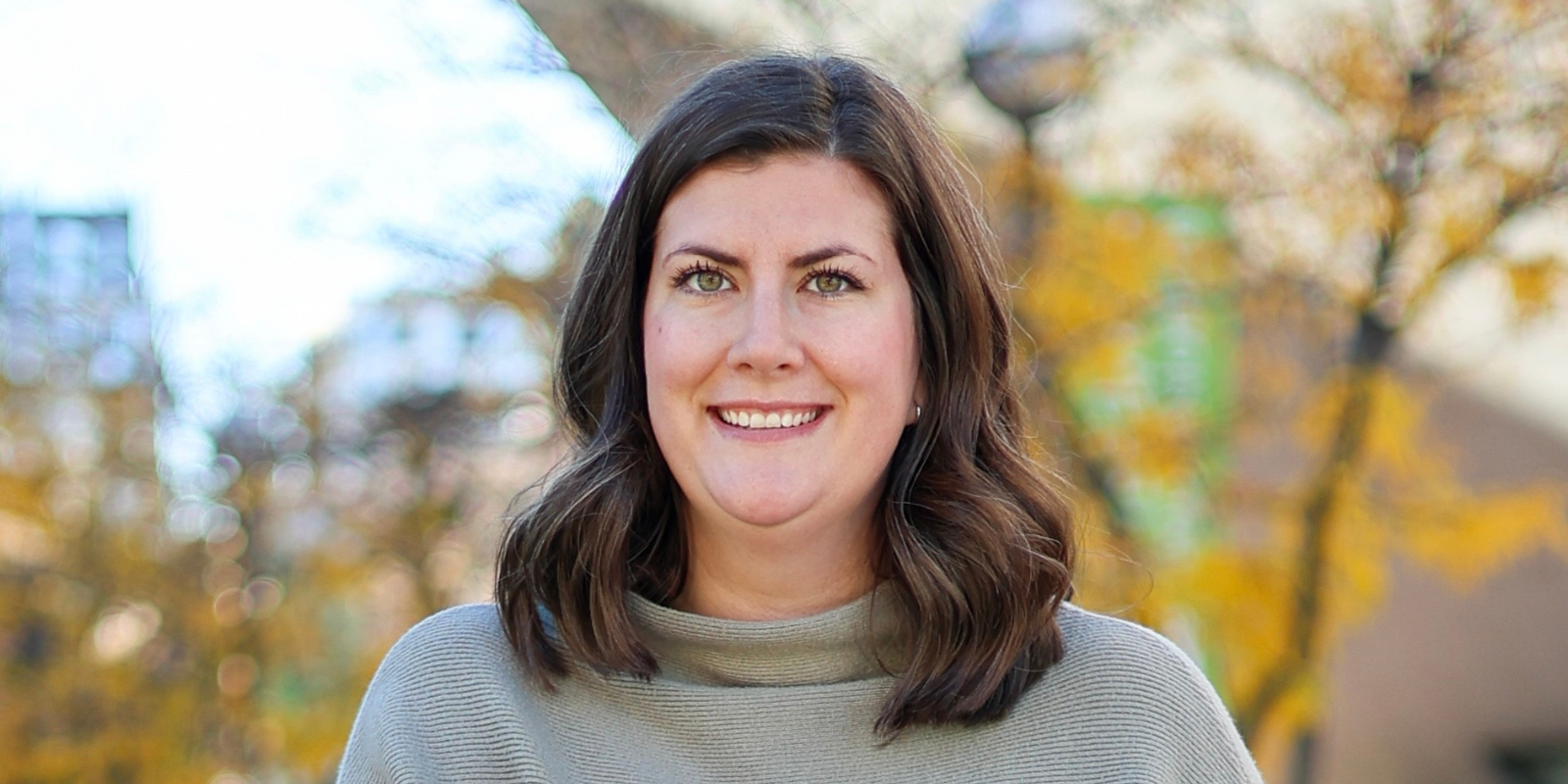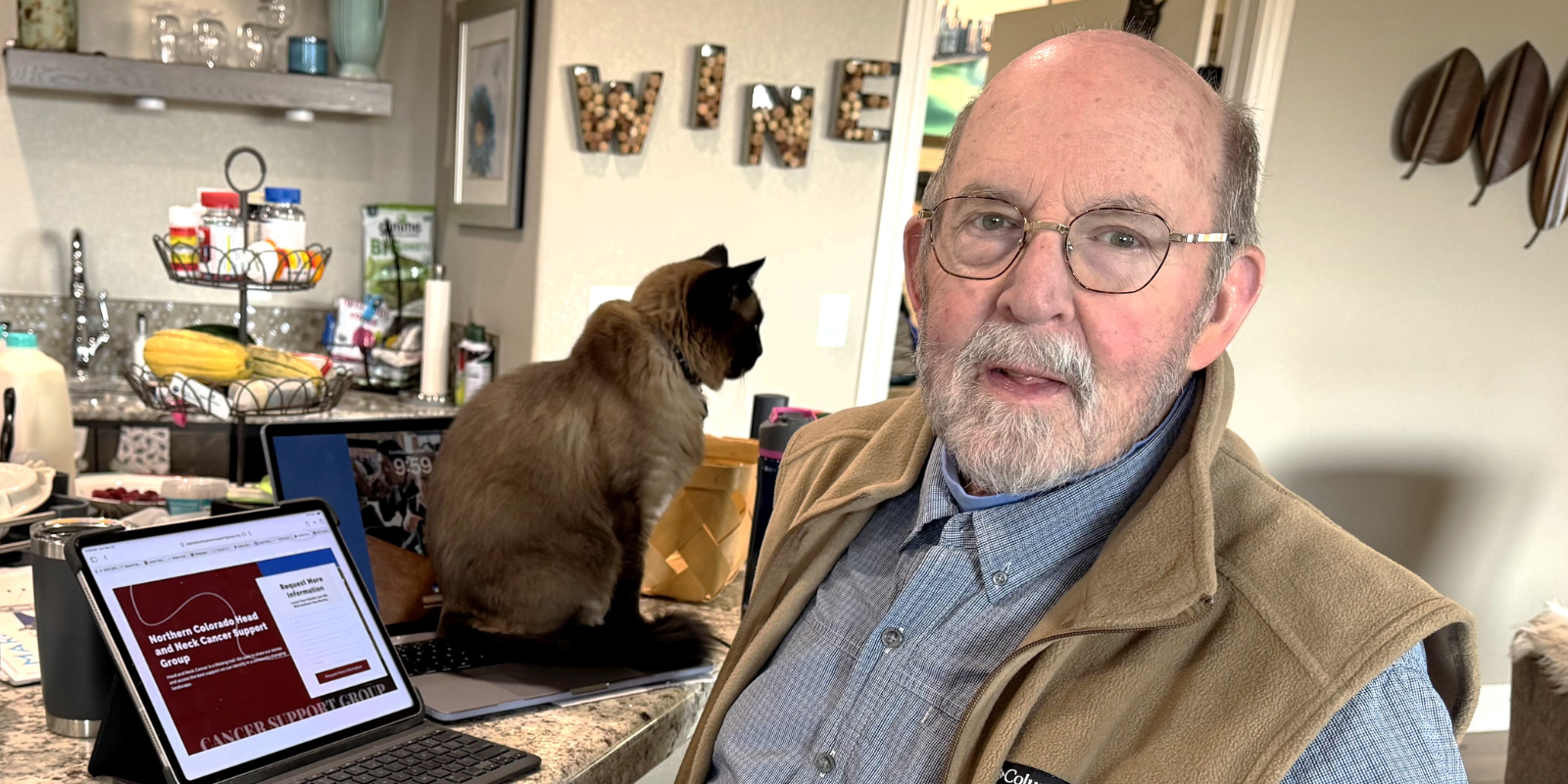Amy Bibbey has two distinct lives. There’s the life she led before ovarian cancer, and there’s everything after diagnosis.
She intends to extend the second part for as long as possible, with the help of the care team at University of Colorado Cancer Center.
Bibbey’s journey started in 2018. The mom of three was wrapping up a busy season at her job in the agricultural sciences department at Colorado State University. She and her husband were about to embark on a trip of a lifetime to Switzerland.
“We were recent empty-nesters. Life was good,” she says.
But in the days before her flight, her back hurt. Not wanting to travel internationally in pain, she saw her primary care physician. After a scan and bloodwork, she was diagnosed within a few hours.
Cancer.
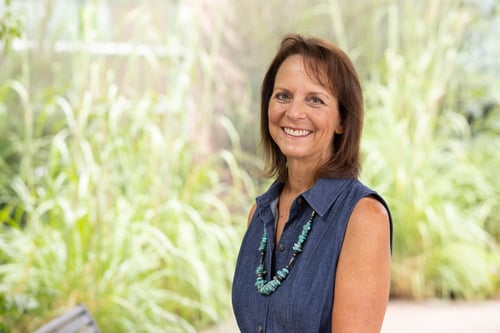 “I can’t say I was completely shocked when they found something,” she says. Despite her active, healthy lifestyle, she had known for a while that something wasn’t quite right.
“I can’t say I was completely shocked when they found something,” she says. Despite her active, healthy lifestyle, she had known for a while that something wasn’t quite right.
“It’s hard because the symptoms mimic so many things,” she says.
She canceled her trip and within a few days met with gynecological oncologist and CU Cancer Center member Bradley Corr, MD.
Bibbey trusted Corr immediately.
“I had a lot of confidence in him,” she says. “Everyone was warm and compassionate, and I knew they were the right care team for me.”
Genetic predisposition informs care plan
Genetic testing revealed the BRCA1 gene as the root cause of Bibbey’s ovarian cancer, which at stage 3 was considered advanced due to the tumor size and its spread to other tissues. Her initial care plan included surgery and six rounds of chemotherapy. It also included a drug called bevacizumab (Avastin), which works with chemotherapy to starve a tumor’s growth. She also qualified for a clinical trial evaluating the addition of immunotherapy to her upfront chemotherapy.
Back at home in northern Colorado, Bibbey began sharing her diagnosis with her colleagues, friends, and family. It was hard for her to tell her siblings about her diagnosis, considering just four months prior, they’d lost their mother to glioblastoma, a fast-growing, aggressive brain tumor. So when Corr used the word “treatable” to describe her cancer and recommended she participate in a clinical trial, Bibbey didn’t hesitate.
“I knew I would do anything I could to inform the next generation of treatment,” she says.
Receiving the placebo in a clinical trial
Clinical trials are studies of new medications or treatments in humans before they are approved for widespread use. They are an important aspect of cancer care. Bibbey’s cancer had already progressed to stage 3, and trials offered an opportunity to try the latest therapy options.
Bibbey received 21 infusions in a clinical trial. She later learned that she had been part of the group that received the placebo. While it didn’t impact her own treatment and she received the current standard of care, she’d do it again in a heartbeat.
“I have no regrets,” she says. “Finding out what doesn't work is a step toward finding out what does work.”
Corr says clinical trials aren’t right for all patients, but they can be a great opportunity for some and should be part of the discussion and offered as a level of care if possible. Not all trials have a placebo, and it’s important for patients to talk to their providers about all treatment options.
“Clinical trials are great for our patients, and not only for altruistic purposes like Amy is kind enough to consider,” says Corr, an associate professor in the Department of Obstetrics and Gynecology at the CU School of Medicine. “I’ve seen phenomenal results in cancers where we might not expect to see results.”
Finding meaning through a health crisis
Bibbey is five years out from her initial diagnosis in 2018. In 2020, routine monitoring revealed the cancer had recurred, so she began another course of treatment with chemotherapy and had an excellent response. She subsequently began taking a PARP inhibitor—a well-tolerated, oral maintenance therapy prescribed after chemotherapy. Corr says PARP inhibitors are shown to prolong and improve survival in patients with BRCA1-positive ovarian cancer. Currently, Bibbey shows no evidence of disease.
“Whenever I talk to people about my health, there’s always an asterisk with it,” she says. But she's hopeful, and closely monitored.
Bibbey jokes that if it wasn’t for ovarian cancer, she’d be in really great shape. She credits a healthy lifestyle for her overall well-being. Even before she got sick, she ate healthy, got plenty of fresh air, and moved her body whenever possible. She’s continued this throughout her treatment to the best of her ability. She’s also added new self-care practices offered through the CU Cancer Center, such as mindfulness and restorative yoga.
More than anything, Bibbey has been surprised by the “small gifts” offered to her throughout her journey.
“I’ve had colleagues send me poetry they’ve written and photographs to elevate my spirits. I was part of a group of cancer patients honored by the CSU and UCHealth ‘Fight Like a Ram’ initiative, and my favorite CSU basketball player wore a jersey with my name on it,” she says.
Bibbey also credits her support system, which she refers to as her “triangle.” Her family is on one side, her friends another, and her CSU colleagues form the third.
She adds that her support triangle is grounded in the care team at the CU Anschutz Medical Campus.
“All of this is lifted off by Dr. Corr and his outstanding team,” she says. “They’re the foundation of everything through this journey.”
Lead photo: Amy Bibbey and her oncologist Bradley Corr, MD.
.png)
